James Creek community speak out against proposed 290 lot subdivision on James Creek Rd, James Creek
A rural northern NSW community with rare fifth generation farmers is warning it’s a canary in a coal mine for unsuitable housing development as they battle a $39m project. Here’s their story.
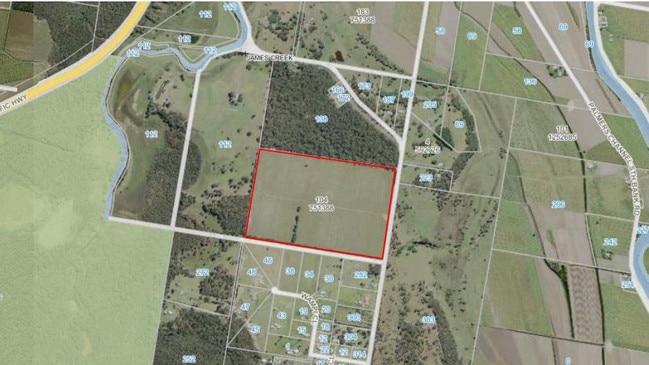
Regional News
Don't miss out on the headlines from Regional News. Followed categories will be added to My News.
A rare intergenerational farming community in the NSW coastal hinterlands is warning it is a canary in a coal mine for unsuitable housing development.
James Creek, located part way between Maclean and the sought-after coastal town of Yamba, is no stranger to fighting against perceived overdevelopment — in fact, the community was, in a sense, formed through such a fight.
Now, an empty 33 hectare field in the middle of flowing paddocks, bordered by James Creek Rd, could soon be transformed into a suburb, of sorts.
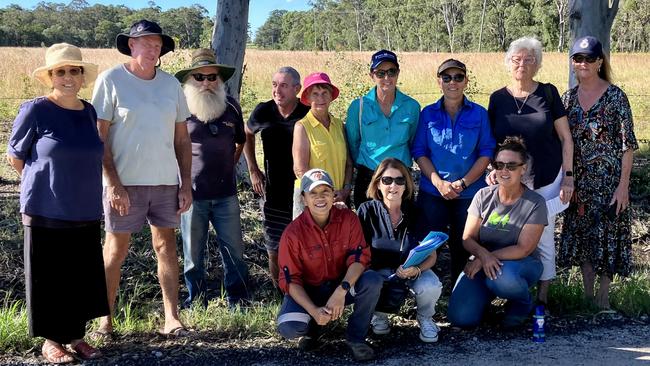
In 2005, one of four options for the upgrade of the Pacific Highway would have cut straight through the area.
Allan Adamson, who has owned land in James Creek since 1992, said he remembered how people overlooked the small community, much like today,
“We put an application back then to literally put James Creek on the map as such,” he said, adding James Creek was previously considered an offshoot of the nearby towns of Harwood and Maclean.
“They thought no one lived in James Creek, but people did.”
Although the community is certainly “on the map” today, it is still small. There were only 257 people and 95 homes in James Creek in 2021, according to the Australian Bureau of Statistics (ABS).
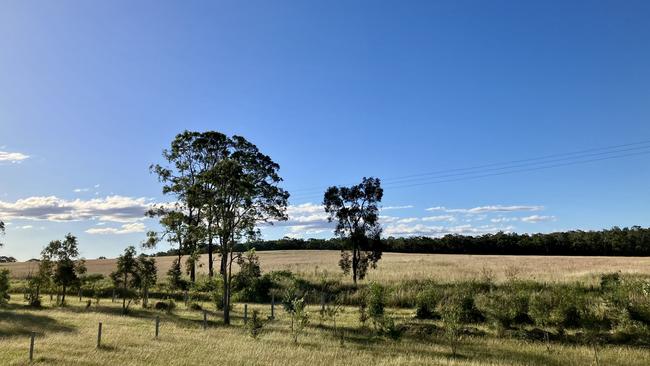
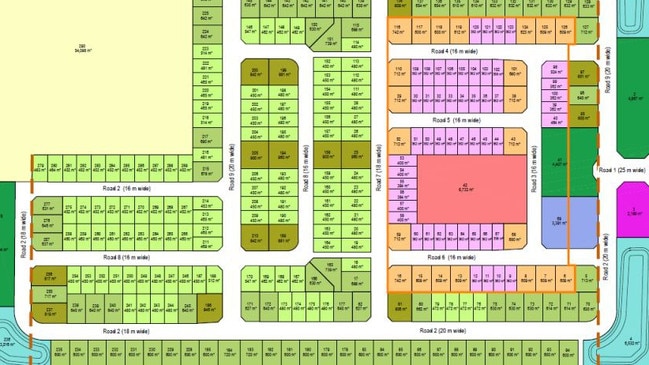
The latest $39 million development proposal would pave the way for a 290 lot subdivision, creating space for 281 new homes, a childcare centre and a commercial site.
An “authorised representative” for the developer Kahuna No 1, Neil Garrard, said he could not comment on the proposal or the residents’ concerns.
The proposal isn’t new — different versions of it has been knocked back over the years.
The most recent pitch seeks to address some past concerns through a variety of means such as the 103-space childcare centre, housing diversity and a 50-metre rural buffer zone.
However, for the residents of James Creek, the latest additions do not hold water.
Rural Fire Service (RFS) volunteer Mick Covell said the proposal could lead to a bushfire disaster in which a northerly winds blow flames toward homes.
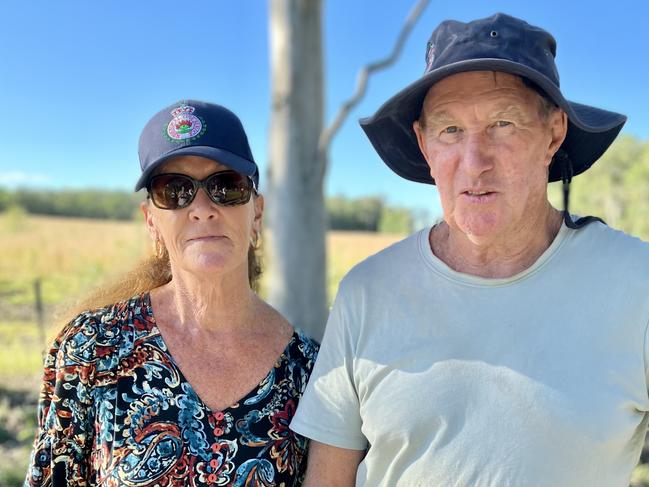
He also worried about people being cut off in a fire.
James Creek Rd, a two-lane, narrow and winding country strip, it is the sole way in and out of the site.
“You could have the whole street on fire,” Mr Covell said.
“Imagine then, a group of parents getting messages about their kids who are in the childcare centre.
“Everyone would be in ‘panic mode’ driving out here … it could end up as a total disaster.”
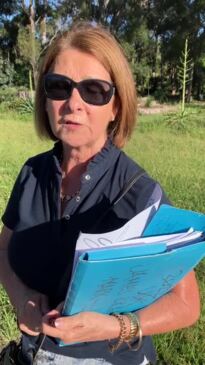
For fourth and fifth generation farmers, Daphne Farlow and her daughters, Melissa Lawrence and Sharyn Farlow, were worried the proposed development would be devastating for their livelihood.
The trio spoke of how the stormwater discharge could build up in the paddocks.
“The water could just build up on our crops and kill your cane and your soybeans … which is our living,” Ms Lawrence said.
“Our concern (with) the water damage is if it’s not done correctly right now, let’s say it’s 10 years time and our paddocks are damaged, waterlogged — who is going to be responsible if we can’t farm anymore, or need to change our farming practices?”
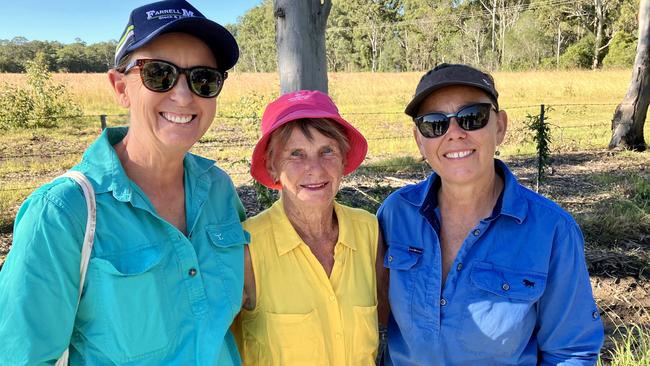
Ms Lawrence went to preschool with another multi-generational farmer, Melissa Cameron-Hellwig, whose farm has been in the family since 1863.
She described James Creek as “a rare intergenerational support network” where everyone looked out for one another.
TMs Cameron-Hellwig pointed across the road to illustrate her point: “That farm right there, yesterday I borrowed their tractor and they gave us pumpkins from two farms over.”

Ms Cameron-Hellwig bought the farm from her mother Caroline only months earlier and said she was already “completely preoccupied” with fighting the proposal.
“The concept of this development is that it’s a brand new village right in the middle of a rural area and there isn’t a precedent for that in the Lower Clarence,” she said.
“There are similar villages but none of them are brand new at this really, really heightened density,” she said.
One of her concerns was the urban heat effect which could be created.
“We’ve just had the hottest March in the planet’s history … this breeze-less concrete development would be like living in a furnace,” she worried.
“ ... in a flood there will be 1500 stranded people in a cow paddock with nothing to do.”
Pat and Ivonne Bowen, who live right across from the field which could soon be transformed, said the proposal had brought the community together in a strange way.
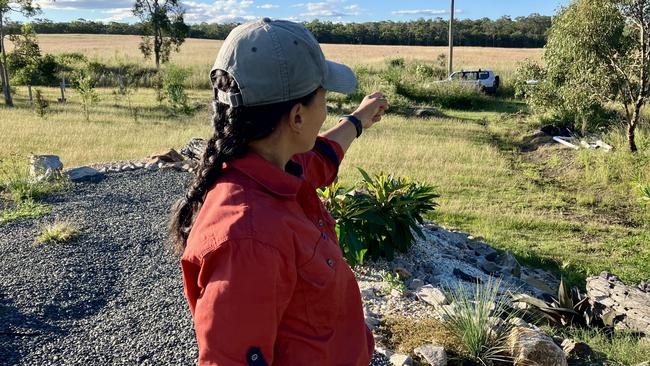
He described it as “humbling” and said “an eclectic bunch” of people with diverse views had come together.
The Bowens, like the other James Creek residents, said they were not opposed to development and progress.
They expected housing on the paddock eventually, but said they were opposed to the plan in place.
“It’s like a kid’s plan they just look at money and don’t want to think about anything else,” Ms Bowen said.
“We’re only small people but we need a voice … We feel powerless but if we are united hopefully they will listen.”




